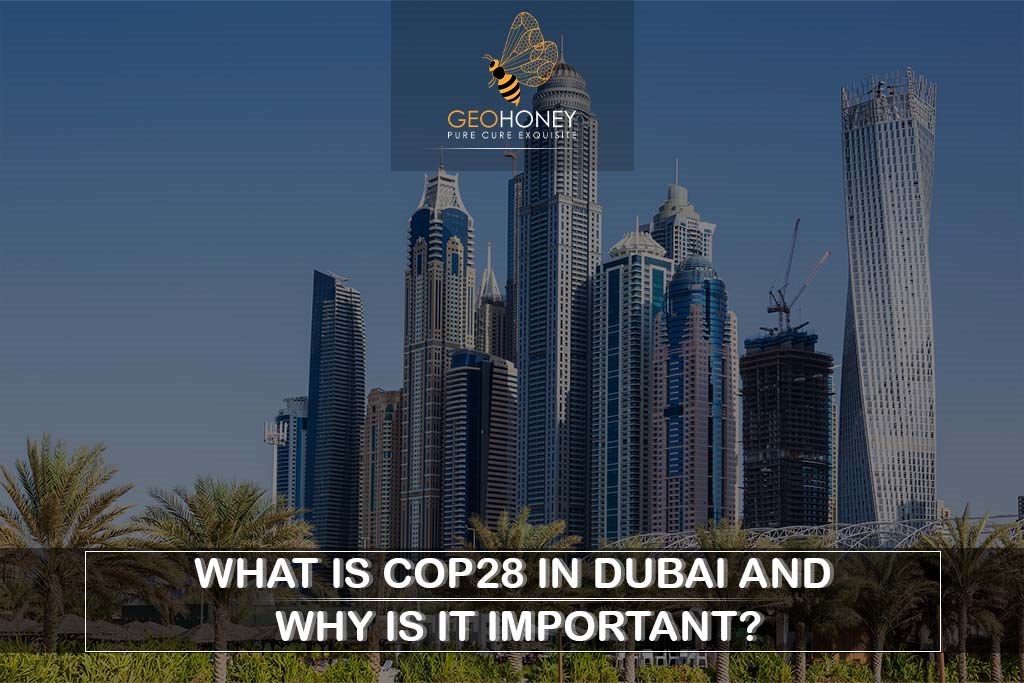- Tokyo: 15:00
- Singapore: 14:00
- Dubai: 10:00
- London: 06:00
- New York: 01:00
What Exactly is COP28 in Dubai, and Why is it Significant?

Climate change will be discussed by world leaders at a large UN summit in Dubai.
It comes after a year of extraordinary weather, with many climate records shattered.
What is COP28 and where is it?
The 28th annual United Nations (UN) climate meeting is known as COP28. Governments are debating how to control and plan for future climate change. The summit will be held in Dubai, United Arab Emirates (UAE), from November 30 to December 12, 2023. "Conference of the Parties" is abbreviated as COP. The countries that signed the initial UN climate agreement in 1992 are known as the parties.
Why is holding COP28 in Dubai controversial?
The UAE is one of the top ten oil-producing countries in the world.
It has nominated Sultan Al Jaber, the CEO of the state-owned oil business, as president of the COP28 negotiations. Oil, like natural gas and coal, is a fossil fuel. These are the primary contributors of climate change because when they are burned for energy, they emit planet-warming greenhouse gases such as carbon dioxide.
However, Mr. Al Jaber's oil company intends to increase production capacity. Mr. Al Jaber claims he is ideally placed to press the oil and gas business for action. He has also overseen the spread of clean technologies such as wind and solar power as the chairman of renewable energy corporation Masdar.
Why is COP28 important?
It is envisaged that COP28 will help preserve the objective of keeping long-term global temperature rises to 1.5 degrees Celsius alive. In 2015, approximately 200 countries agreed on this in Paris. According to the UN's climate body, the Intergovernmental Panel on Climate Change (IPCC), the 1.5C target is critical for avoiding the most devastating effects of climate change.
Long-term warming is currently around 1.1C or 1.2C higher than it was before humans began burning fossil fuels on a large basis. Even with current agreements to reduce emissions, the world is on course for around 2.5 degrees Celsius of warming by 2100. According to the UN, the window for staying inside the 1.5°C limit is "rapidly closing."
What will be discussed at COP28?
Progress towards the Paris targets will be a priority, however the COP28 will also focus on:
- Accelerating the transition to clean energy sources in order to "slash" greenhouse gas emissions by 2030.
- Transferring funds for climate action from affluent to poorer countries and negotiating a new pact for developing countries.
- Concentrating on the environment and people.
- COP28 will be the "most inclusive" ever.
Who will be present at COP28?
More than 200 governments have been invited, though many leaders, including those of the United States, China, and India, have yet to confirm their attendance. UK Prime Minister Rishi Sunak has confirmed his attendance. Environmental charities, community groups, think tanks, companies, and faith-based organisations will all be represented.
What are the most likely COP28 sticking points?
There will almost certainly be dispute over the future of "unabated" fossil fuels - coal, oil, and gas that are consumed without devices to trap their emissions.
Mr Al Jaber has advocated for a "phase down" in their use, which means a gradual reduction but not a complete halt. The European Union, on the other hand, is anticipated to press for a complete "phase out."
Climate activists argue that limiting agreements to "unabated" fossil fuels allows some production to continue. They claim that there is no certainty that capturing emissions will work on a large scale.
Money will be a concern as well. At COP27, wealthy countries decided to establish a "loss and damage" fund to compensate poorer countries suffering from the effects of climate change.
However, it is unclear how this will operate. The United States, for example, has ruled out paying climate reparations for past emissions. In 2009, wealthy countries promised to give developing countries $100 billion (£82 billion) each year by 2020 to assist them decrease emissions and prepare for climate change. The goal was missed, but it is projected to be met in 2023.
Will COP28 have any impact?
COP critics, notably campaigner Greta Thunberg, accuse the summits of "greenwashing," or promoting countries' and businesses' climate credentials without making the necessary adjustments.
However, as world leaders convene, summits provide the opportunity for global agreements that go beyond national actions. According to the UN, the 1.5C temperature target established in Paris at COP21 has prompted "near-universal climate action."
Source: bbc.com



